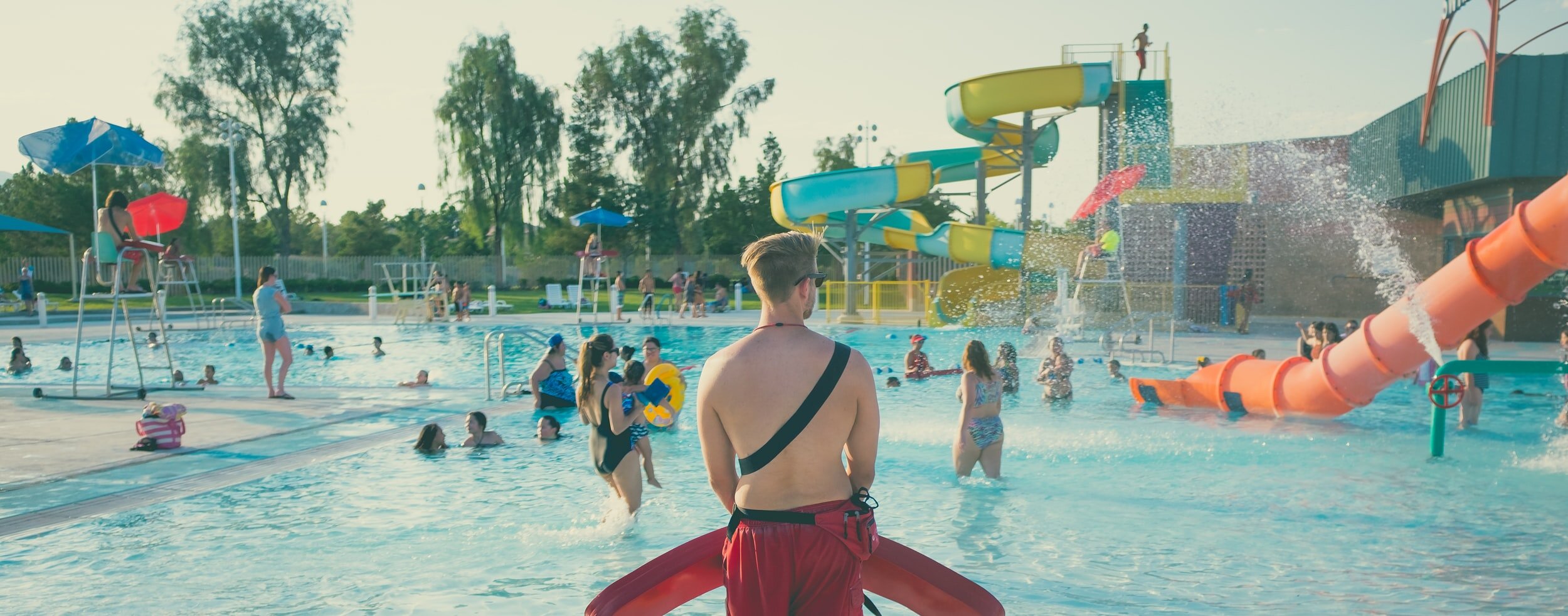HOA Pool Behavior: What Boards Can Do
Do you ever get complaints about neighbor behavior at your community pool? While the pool is supposed to be fun, it can become a sore spot at meetings. What can the board do to reign in some of the offenders?
Who doesn’t love a community pool? The best way for everyone to enjoy the pool is an agreed-upon set of pool rules. It’s the perfect time of year to start thinking about how to set the pool up for everyone’s safety and enjoyment.
HOAResouces.com spoke with Dwayne Lowry, CMCA, AMS, general manager of New Territory Residential Community Association in Sugar Land, Texas, to get some perspective on creating and revising pool rules,
Rules that Cover It All
HOA board members and community managers need to make sure their pool rules are comprehensive. They cover everything from guests, children, swimwear, slides, diving boards, and even smoking and cellphones. Lowry’s community, New Territory, bans smoking at its pools for all comfort and health. Also, keep cell phones at least 6 feet from the water. “People tend to do rash things to save a phone, and that would pose safety concerns for the guards,” Lowry said.
Fair and Legal Rules
While community associations are responsible for the health, safety, and welfare of the people who use common area facilities, like pools, they’re also responsible for writing rules that aren’t discriminatory. The federal Fair Housing Amendments Act of 1988 forces associations to examine all regulations regarding using the shared facilities to ensure they do not discriminate against individuals protected by the act, including discrimination based on handicap and familial status.
Rules with Basic Principles
The board must have sufficient rule-making authority in its governing documents. Adopt rules that duly reflect the best interest of the community at the board meeting. Once the association posts the rules, enforce them by publishing and distributing them to association members.
The rule must be reasonable, and it must relate to a legitimate purpose. It should be an excellent response to the addressed problem.
The rules must uniformly enforce the common interests of the community.
Education Overload
It’s not enough to post the rules around the pool. Send reminders and brief new residents about the rules. “Since new people are constantly moving in and out of the neighborhood, there are always new residents to educate,” Lowry said.
Enforce the Rules
Whether you’ve got new or long-time residents, enforces the rules to make effective change. Restrictions are not foolproof, but covering the basics and tailoring the details will make the summer at the pool easier — and more fun! — for you, your staff, and your residents.
Contact Us
Need assistance on how to instill pool rules that meet the needs of your community? Please contact your association manager, or contact Condominium Associates directly. We look forward to hearing from you!



